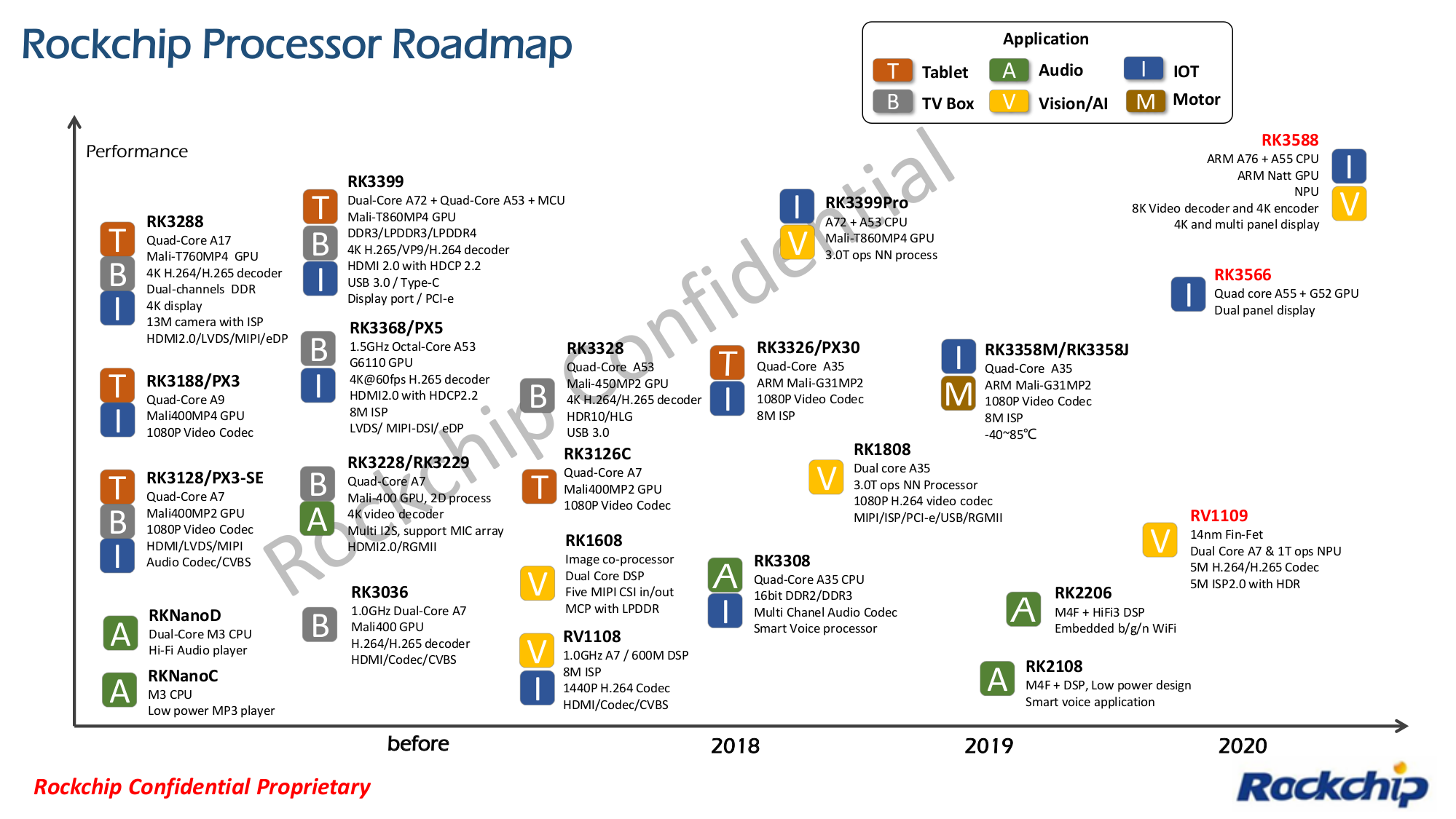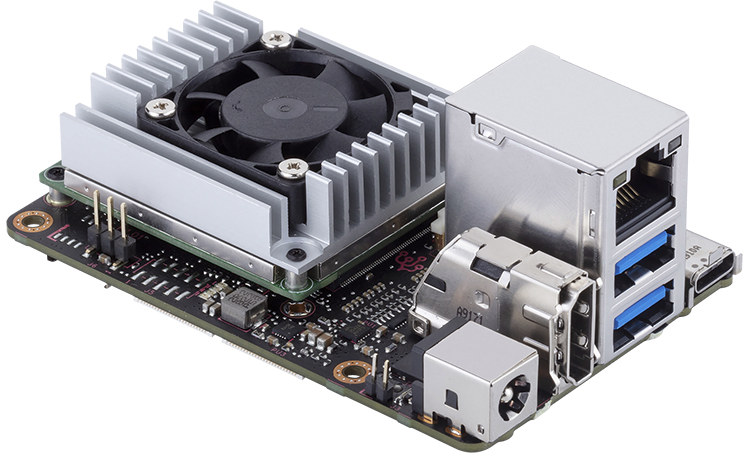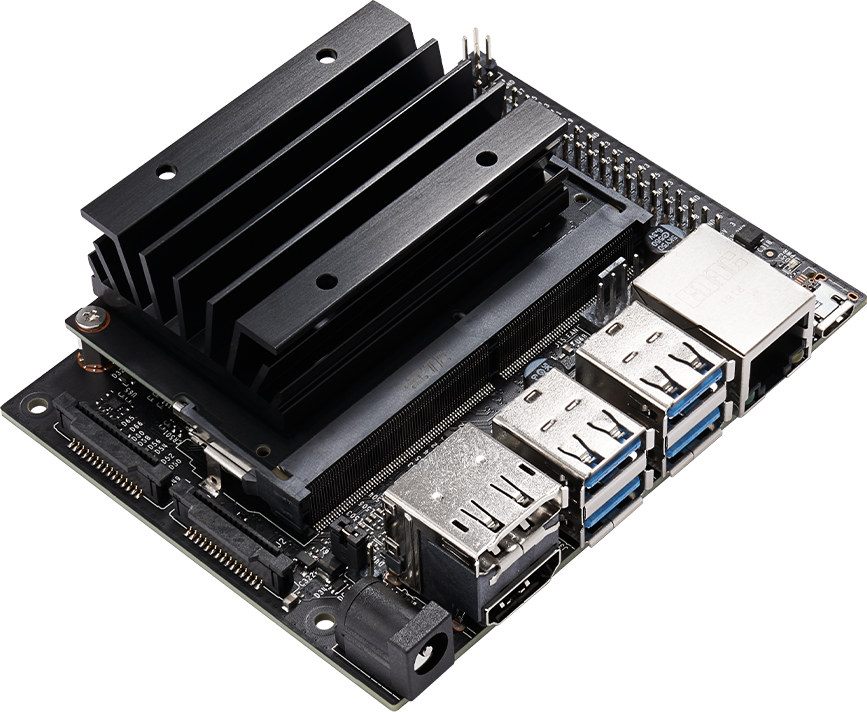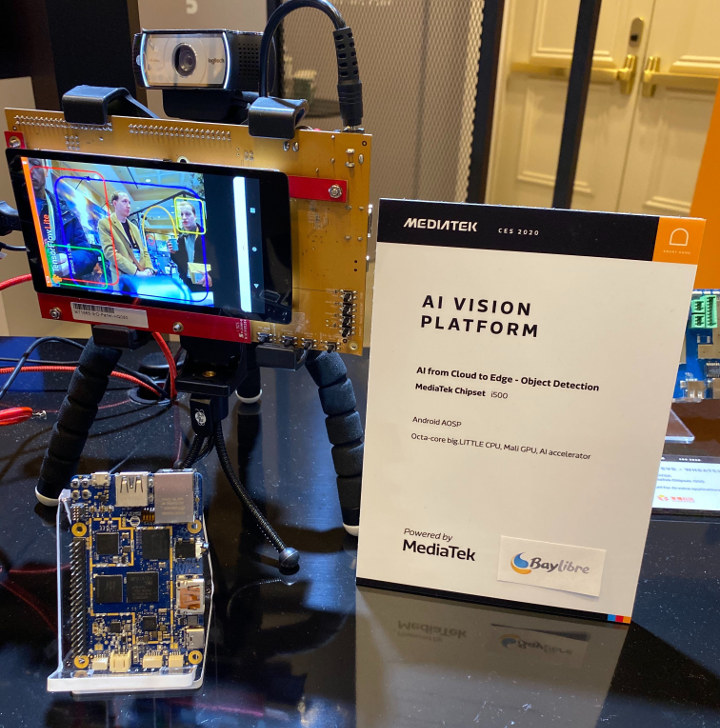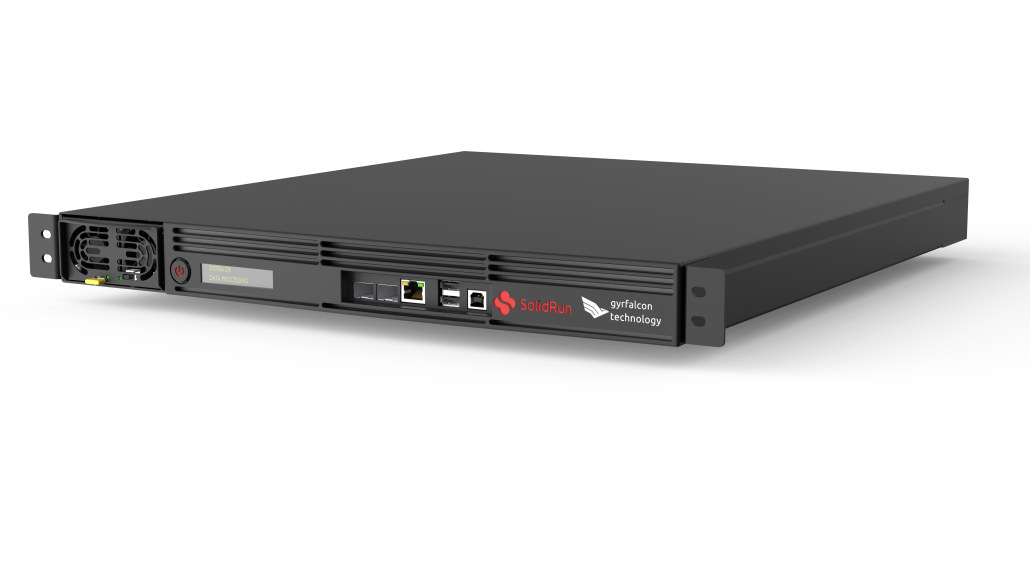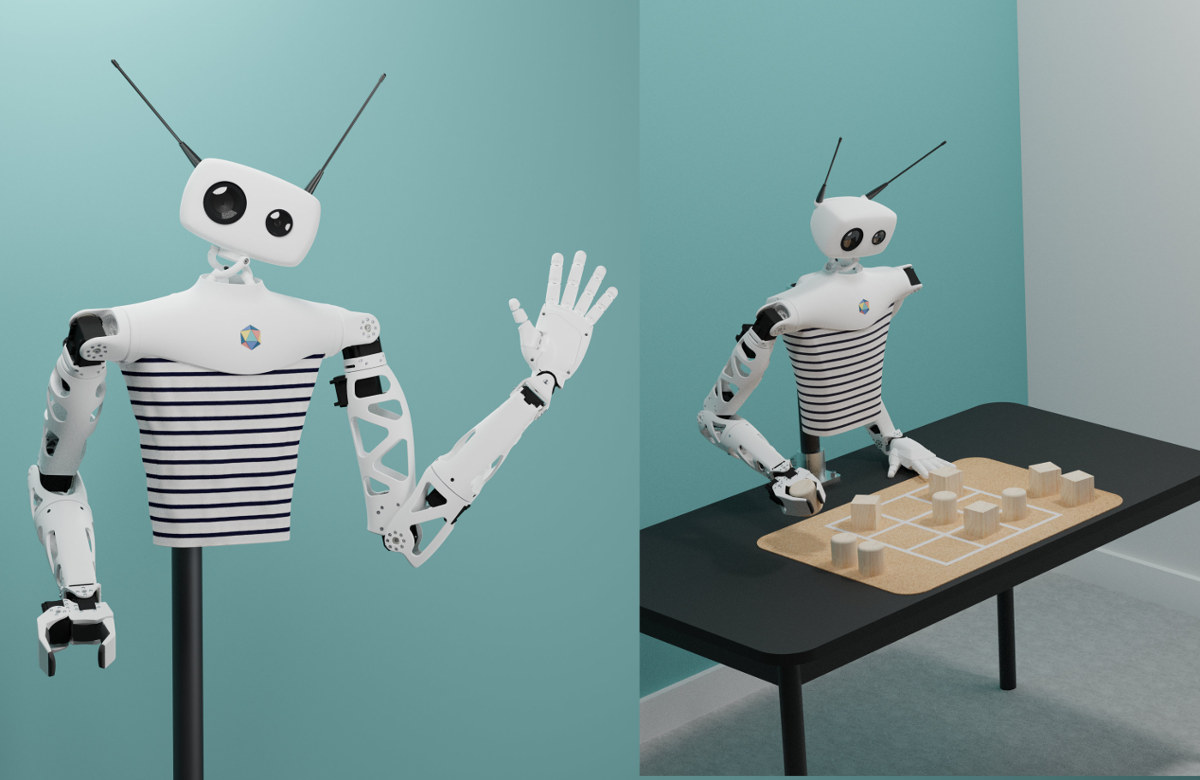Last year, Rockchip had a presentation in China where they highlighted their processor roadmap for 2020, and we learned about processors such as Rockhip RK3588 Cortex-A76/A55, RK3530 Cortex-A55 SoC’s, and RV1109 camera processor, but we had limited details about the processors at the time. CNX Software has now received a more detailed roadmap that reveals some of the specifications about the new processors, and some Rockchip products that people may not be aware of such as a 3D structured light module and a 4G module. Rockchip RK3566 Rockchip RK3530 is not shown in the roadmap, but there’s a similar RK3566 processor, so I assume the company just changed the name. Rockchip RK3566 specifications: CPU – Quad-core Arm Cortex-A55 @ 1.8GHz GPU – Arm Mali-G52 2EE NPU – 0.5 TOPS with support for INT8/ INT16 Multi-Media 8M ISP 2.0 with 3F HDR(Line-based/Frame-based/DCG) Support MIPI-CSI2,4-lane 1080p60 H.265, H.264 encoding 4K H.264/H.265/VP9 60fps […]
ASUS Tinker Edge T SBC Launched for $168 and Up
ASUS unveiled Tinker Edge T & CR1S-CM-A SBCs based on Google Coral Edge TPU system-on-module featuring both NXP i.MX 8M processor and Google Edge TPU co-processor for AI acceleration in May 2019, but at the time none of the boards were available. But earlier this month, ASUS officially announced the board, and it can now be purchased on various sites including Provantage (~$168.35) and Physical Computing (21,600 JPY ~ $200). It is also listed on Connection for about $198 but currently out of stock. Edge TPU module SoC – NXP i.MX 8M quad-core Arm Cortex-A53 processor with Arm Cortex-M4F real-time core, GC7000 Lite 3D GPU ML accelerator – Google Edge TPU coprocessor delivering up to 4 TOPS System Memory – 1 GB LPDDR4 RAM Storage – 8 GB eMMC Flash memory Wireless Connectivity – Wi-Fi 2×2 MIMO (802.11b/g/n/ac 2.4/5GHz) Bluetooth 4.2 Baseboard Storage – MicroSD card slot Networking – Gigabit […]
NVIDIA Jetson Nano Developer Kit-B01 Gets an Extra Camera Connector
Launched in March 2019, NVIDIA Jetson Nano developer kit offered an AI development platform for an affordable $99. The kit is comprised of Jetson Nano module and a carrier board, and the version I received last November ended with “A02”. Jetson Nano developer kit is now getting updated with B01 carrier board that adds an extra MIPI CSI connector and other few changes, including compatibility with NVIDIA Jetson Nano production module (with eMMC flash instead of MicroSD card). Jetson Nano developer kit-B01 specifications: B01 Jetson Nano CPU Module 128-core Maxwell GPU Quad-core Arm A57 processor @ 1.43 GHz System Memory – 4GB 64-bit LPDDR4 @ 25.6 GB/s Storage – microSD card slot Video Encode – 4K @ 30 | 4x 1080p @ 30 | 9x 720p @ 30 (H.264/H.265) Video Decode – 4K @ 60 | 2x 4K @ 30 | 8x 1080p @ 30 | 18x 720p @ 30 […]
MediaTek Rich IoT SDK v20.0 Released, Pumpkin i500 SBC Announced
MediaTek Rich IoT SDK v20.0 is Available MediaTek has announced its Rich IoT SDK v20.0 is already available for the i300 and i500 chipset series. The SDK was developed in collaboration with BayLibre, the French developer of Linux and Android embedded systems software, which is also known for helping mainlining Amlogic processors to Linux. The i300A, i300B, and i500 hardware platforms are supported and the features are focused on IoT and the emerging generation of smart devices. Supported OS’es and Test Applications The Rich IoT SDK v20.0 supports Yocto 3.0 Linux and Android 10 to let third-party customers and members of the MediaTek Ecosystem test Computer Vision algorithms, AI models and custom software on top of the base layer. Updates and Maintenance The SDK is receiving updates quarterly, with security updates and patches being delivered over-the-air (OTA) on a regular basis. The chipset series has a timeline for updates to […]
SolidRun Janux GS31 Edge AI Server Combines NXP LX2160A & i.MX 8M SoCs with 128 Gyrfalcon AI Accelerators
AI inference used to happen exclusively in powerful servers hosted in the cloud, but in recent years great efforts have been made to move inference at the edge, usually meaning on-device, due to much lower latency, and improved privacy. On-device inference works, but obviously, performance is limited, and on battery-operated devices, one also has to consider power consumption. So for some applications, it makes sense to have a local server with much more processing power than devices, and lower latency than the cloud. That’s exactly the use case SolidRun Janux GS31 Edge AI inference server is trying to target using several NXP processors combined with up to 128 Gyrfalcon Lightspeeur SPR2803 AI accelerators Janux GS31 server specifications: CPU Module – CEx7 LX2160A COM Express module with NXP LX2160A 16-core Arm Cortex A72 processor @ 2.0 GHz System Memory – Up to 64GB DDR4 RAM via 2x SO-DIMM sockets “Video” Processors […]
Getting Started with Amlogic NPU on Khadas VIM3/VIM3L
Shenzhen Wesion released the NPU toolkit for Khadas VIM3/VIM3L last November, so I decided to try the latest Ubuntu 18.04 image and the NPU toolkit on Khadas VIM3L, before switching to VIM3 for reasons I’ll explain below. I’ve followed two tutorials from the forum and wiki to run pre-built samples and then building a firmware image and samples from source. Khadas VIM3L and VIM3 Have Different & Optional NPUs This will be obvious to anyone who read the specs for Khadas VIM3 and VIM3L that the former comes with a 5 TOPS NPU, while the one in the latter only delivers up to 1.2 TOPS. But somehow, I forgot about this, and assume both had the same NPU making VIM3L more attractive but this type of task, Obviously I was wrong. But the real reason I stopped using Khadas VIM3L can be seen in the photo below. My board is […]
Lattice Introduces CrossLink-NX FPGA for Edge AI & Embedded Vision
Lattice CrossLink-NX FPGA Lattice Semiconductor has announced the first product associated with its Nexus Platform, the CrossLink-NX FPGA designed for embedded vision and Edge AI applications. There are two offerings at this time, the CrossLink-NX FPGA 17, and the CrossLink-NX FPGA 40. Recent Announcements The Nexus Platform was introduced at the beginning of December 2019, and now CrossLink-NX has been developed and is being manufactured. The first announcements of Lattice Nexus Platform and The CrossLink-NX Product Family came as the company’s moved to capture the embedded vision systems market. The Standout Features The low-power consumption, low soft error immunity, and 10Gbps MIPI are highlights of the CrossLink-NX FPGA. Other features include Instant On, with IO configured in 3 ms, and a total of 8 ms for the device. The Cross-Platform FPGAs The trends in technology are leading to devices that can cross function in a number of different tech environments. […]
Raspberry Pi 4 Powered Open Source Hardware Robot Paves the Way for Robot Maids
Eventually, we all expect robots to do chores and other manual tasks performed by humans such as preparing and serving food at restaurants, carry objects over rough terrain as opposed to just inside the warehouse with a flat floor, or even moves pieces on a chessboard when other humans are no here to play with us. I’m fully expecting to eventually own a robot maid of sorts to wash dishes, mop the floors, and perform other tasks on my behalf. We are not there yet, but Raspberry Pi 4 powered Pollen Robotics’ Reachy open source-hardware robot is getting us closer to the goal as it can handle small objects and via two robotic arms and a dual-camera head, and can also interact with humans using a microphone and a speaker. Key features and specifications of Reachy robot: Main body SBC – Raspberry Pi 4 SBC with 2GB according to a […]


